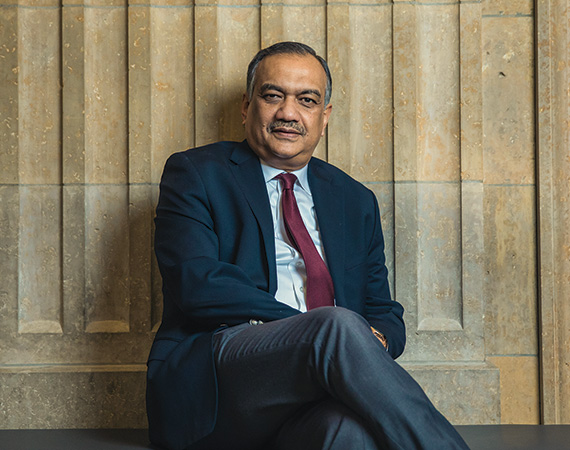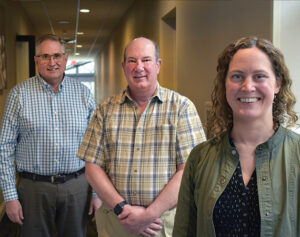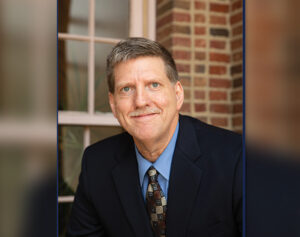Dr. Kingshuk (“KK”) Sinha is chair of the Supply Chain and Operations Department and the Elmer L. Andersen chair in Sustainable Supply Chain at the University of Minnesota’s Carlson School of Management. With more than 5,000 students in 13 degree programs and 58,000 alumni in 100+ countries, the Carlson School has educated future business leaders since 1919.
Missing products from Target’s shelves often lead people to think of supply chains. When you think of supply chains, it’s much more complex.
Dr. Sinha: I see a product as a bundle of goods, services, and experiences. You don’t create a car; you create a community around a car. There’s design and development, and then manufacturing. You want to make sure you can produce in high volume, reliable, and replicable quantities. In this day and age, you’re not doing it alone. Whoever does whatever best wherever does that specific task. I’m deriving competencies from my suppliers. We are in this together. When I pivot my design, I need to make sure everyone knows. Keeping it close to my chest is from a world in the past.
Production should be integrative, inclusive, and mindful of who does what, where. Then there is outbound logistics. How do I now deliver that product to the consumer? The last thing I need to understand is how to return the product should something go wrong. I have to worry about distribution centers, multi-modal transportation — trucks, rail, ships, air. That’s why we have the C.H. Robinsons of the world. There is an enormous number of bottlenecks and inefficiencies, and I’m thinking about all of this simultaneously.
How can things like COVID or the current Ukraine situation disrupt the global supply chain?
Dr. Sinha: Great question. I think about this holistically and see four “Cs” currently in play: COVID-19, climate change, conflict and cyberattacks. All four of them are currently converging. I would venture to say the mean time between any of these episodes is getting shorter and shorter. If you think in terms of COVID-19, we are not out of the woods yet — it’s raging in other parts of the world. In fact, COVID-19 and the conflict in Ukraine are very intertwined because only 30% of the people in Ukraine were vaccinated. COVID-19 took capacity out. So long as climate change is in the spotlight, we pay attention, but those of us in supply chain, we live it.
And now the Ukraine crisis has come along. The region is the breadbasket, and one of the challenges we are beginning to experience is food shortages. The other thing that is happening, which sometimes we forget, is the large human migration. This is all supply chain. Humanitarian logistics is a major part of what we do. This is adding inflationary pressures on items fundamental to Maslow’s hierarchy. We need certain basic stuff. It’s not just the car not coming out of General Motors.
We have never encountered anything like COVID. These were deemed as Black Swan events, right? But this is becoming a new normal Black Swan. Climate change is not going away. War is not going away. And, although this is talked about less, cyberattacks are happening in ways that you cannot even imagine. We are staying a bit ahead, so it’s still not knocking off our infrastructure, but you cannot take the guard off.
What are the challenges and opportunities for supply chain leaders in our state?
Dr. Sinha: We can make Minnesota a magnet for supply chain talent development. We have at least four major sectors here: med device and health, food and agribusiness, retail, and global manufacturing. These are not boom-and-bust industries. The numbers of talent needed for running supply chain operations is pretty large.
We need to develop the capability — and the thinking. You cannot just be in your silo. You have to think of your suppliers’ suppliers and your customers’ customers. Even small manufacturers are fulfilling demand from all kinds of places. We hear the phrase, “We are all in this together.” That’s literally what we do. One thing that is wonderful about the Twin Cities is a lot of our leaders were also very mindful of the community.
We have to straddle between the forest and the trees. That’s what is unique about supply chain thinking and training. One moment you’re sitting in the supreme command, thinking geo-politics, and the next moment you’re in the trenches. Strategizing and executing go hand in hand. In our program, we want to make sure students have global orientation, embrace strategic thinking, consider social responsibility, and have some understanding of data analytics to ensure they pick and choose what is relevant. And we do this with students who are not data science students.
Is there a message that we didn’t touch on that you’d like to pass on to our readers?
Dr. Sinha: There’s much in our community to be grateful for, and the onus is on us to take what we have inherited and give back more to make our community stronger and better. It starts with looking at supply and demand of our own basic needs and make sure they are fulfilled and remain fulfilled. These are extraordinary times, and we should turn a lot of the challenges we have into opportunities. I feel blessed to be in a profession and discipline that, by definition, allows us to think both expansively and inclusively at the same time.
…
Featured story in the Summer 2022 issue of Enterprise Minnesota magazine.


